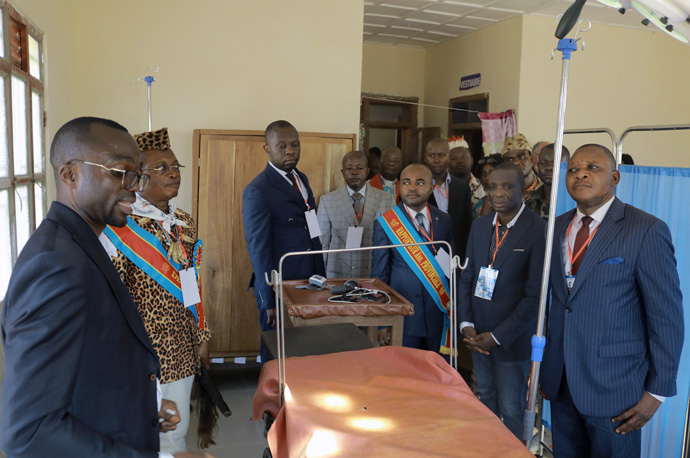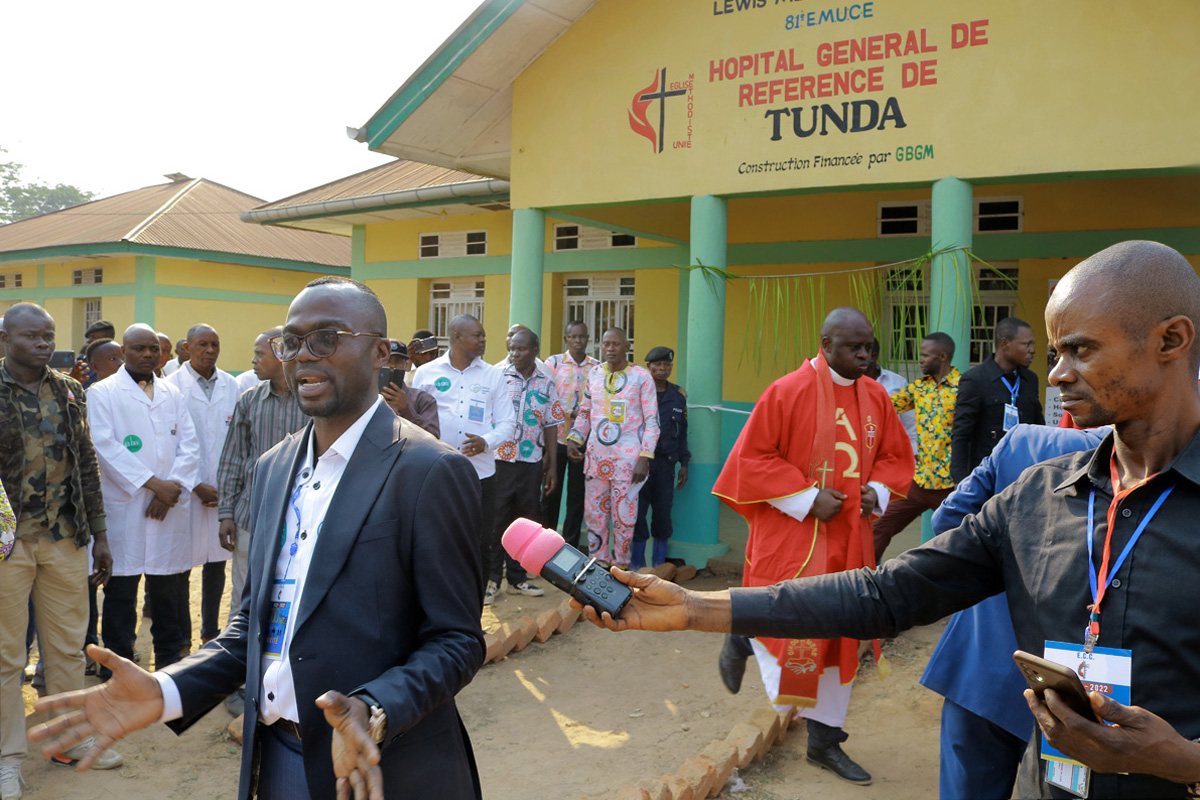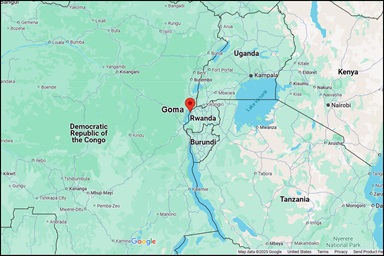Key points:
- The United Methodist Church’s Tunda General Hospital is housing a monkeypox research laboratory for the government.
- The lab will examine samples of monkeypox virus on site in Tunda. It also will be used to study the spread of the disease and identify people at risk, said Dr. Claude Tshosongo.
- According to the National Monkeypox Coordination, the epidemic is currently affecting 17 of Congo’s 26 provinces and has killed more than 328 people and infected over 6,914 others.
The United Methodist Church in Eastern Congo has strengthened its health system with the help of the Congolese government.
The Institut National des Recherches Biomédicales (National Institute for Biomedical Research) has set up a monkeypox research laboratory at the United Methodist Tunda General Hospital in Maniema province. The church has made its buildings available to the government for the laboratory.
Tunda is one of the ecclesiastical districts of the East Congo Conference, where the first American missionaries settled in 1922.
The new laboratory will help combat the monkeypox epidemic that has been raging in the region since December 2021.
According to the National Monkeypox Coordination, the epidemic is currently affecting 17 of the country's 26 provinces and has killed more than 328 people and infected over 6,914 others.
“In Tunda, the epidemic has killed more than 70 people and contaminated more than 800,” said Tunda Zone Chief Medical Officer Dr. Freddy Yemba.
Monkeypox is a disease caused by a virus that is transmitted through contact with infected animals. Symptoms include fever, headache, muscle pain, swollen lymph nodes and a rash.
Dr. Claude Tshosongo, medical director of Tunda General Hospital, said the installation of the lab comes in response to the appeal launched last year by United Methodist Bishop Gabriel Yemba Unda of Eastern Congo. He urged United Methodists and others to get involved in order to end the disease.
Tshosongo said the laboratory is used to examine samples of monkeypox virus on site in Tunda. It also will be used to study the spread of the disease and identify people at risk, he said.
“Before, we had to wait several days because samples taken from patients had to be flown first to Kindu, more than 250 kilometers from Tunda, and then to the national laboratory in Kinshasa,” Dr. Yemba said.
Dr. Damas Lushima, health coordinator for The United Methodist Church in East Congo, said the opening of the research laboratory was an important step in the fight against the monkeypox epidemic in the region.
“Thanks to the research carried out on site at Tunda, it's easy to help save lives and protect people from the disease,” he said.
Tunda General Hospital, the largest medical facility in the region, was established by The United Methodist Church. The United Methodist Board of Global Ministries invested nearly half a million dollars in the construction of the new hospital building.
“It's the closest hospital for almost 100 kilometers,” said Lushima. “Without this facility, 100,000 people would no longer have access to health services.”

The hospital was the first to organize itself to deal with cases of monkeypox. “Right from the start of the epidemic, we organized a service to receive and treat patients free of charge,” Lushima said.
Tshosongo said that treating people with monkeypox was very difficult at first.
“The hospital didn't have the financial means to buy medicines and personal protective equipment, even though treatment was free,” he said. “The only advantage we had was the availability of buildings and beds to receive patients. Without that, the situation would be worse.”
In March of 2022, Bishop Unda said the church would be open to collaborating with the government on efforts to contain the epidemic.
Subscribe to our
e-newsletter
“I have no problem with the Congolese government coming to our aid, because we built this hospital for the benefit of the population, and when that population suffers, we must all mobilize,” he said.
Lushima pointed out that through Bishop Unda's pleas, the Congolese government also provided equipment and training for staff at Tunda General Hospital.
“(It) has improved the quality of health care provided by the hospital in the treatment of people with monkeypox,” Lushima said.
More than 800 people suffering from monkeypox have received treatment to date.
Tshosongo said that infection control and prevention measures in the hospital have been reinforced with the addition of an incinerator, toilets and fencing.
Yemba said that thanks to the partnership between The United Methodist Church and the Congolese government, rural communities have easy access to quality health care.
“Investing in strengthening the health care system has made it possible to achieve results …,” he said.
Tshosongo said monkeypox can have lasting effects on those infected, noting that some survivors now have visual impairments, scarring, pain and other ailments.
“We need other partners to intervene and support these survivors after diagnosis and treatment,” he said.
Unda encourages the health council of The United Methodist Church in East Congo "to continue working to develop programs that fall within the framework of the global partnership for health-system strengthening, with a view to putting an end to the diseases that cause so many avoidable deaths.”
Kituka Lolonga is a communicator in the Kivu Conference. Dr. Philippe Okonda, president of the East Congo Health Council, contributed to this story.
UM News contact: Julie Dwyer, news editor, newsdesk@umcom.org or 615-742-5469. To read more United Methodist news, subscribe to the free daily or weekly Digests.




